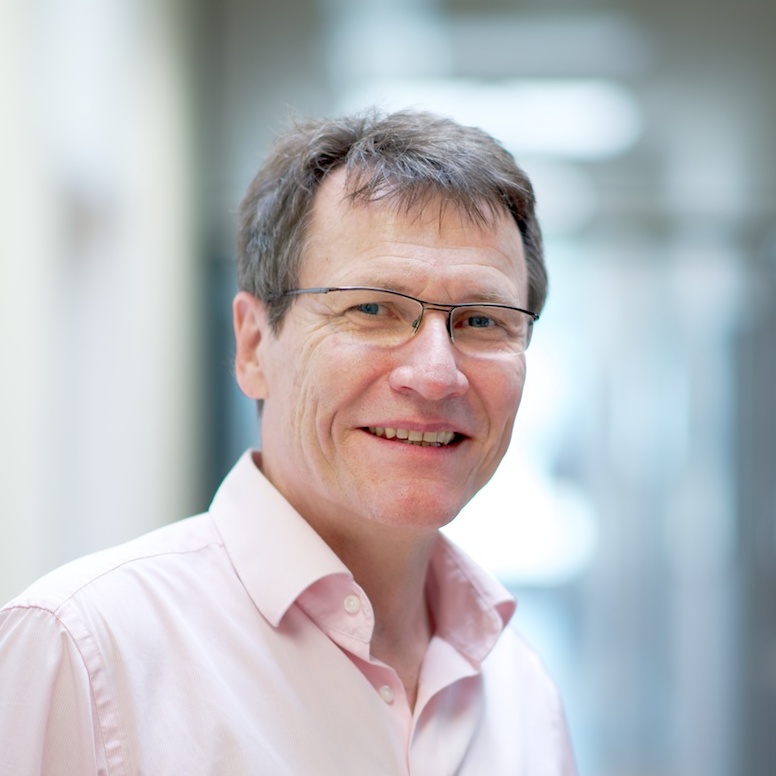Das Klinikum

Prof. Dr. Jan Born
Direktor
Director of the Department of Medical Psychology and Behavioral Neurobiology at the University of Tübingen, Germany.
Kontakt
Telefonnummer: 07071-29-88923
E-Mail-Adresse: jan.born@uni-tuebingen.de
Klinik / Institut / Zentrum
Wissenschaftliche Tätigkeit
-
Research Focus
• Sleep and sleep-dependent plasticity
• Mechanisms of learning and memory
• Development of memory -
Major Scientific Contributions
• Groundbreaking experiments: Beginning in the early 2000s, my team published a series of studies (e.g., Marshall et al. 2006, Nature, Rasch et al. 2007, Science, Latchoumane et al. 2017, Neuron, Sawangjit et al. 2018, Nature, Sawangjit et al. 2022, PNAS) indicating a causal role of the EEG slow oscillation and of hippocampal memory reactivations for memory consolidation during the slow wave sleep stage in humans and rodent models.
• Integrative concepts: Based on my studies of the memory function of sleep, I developed the concept of an “active systems consolidation” process of memory formation during sleep which is currently the most influential concept in the field with the first publication of this theory (Diekelmann and Born, 2010, Nat Rev Neurosci) receiving more than 4000 citations. Collectively, this work proposes active systems consolidation during sleep as a common principle underlying memory formation in biological systems.
• Methods and techniques: My lab developed a number of highly original methodological approaches to study memory processing during sleep, particularly pertaining to human research. Apart from my early work on the direct brain access of peptides via intranasal application in humans (Born et al. 2002, Nat Neurosci), I was the first to use non-invasive forms of brain stimulation in humans, including closed-loop approaches, to enhance specific sleep EEG rhythms (Marshall et al. 2006, Nature, Ngo et al. 2013, Neuron) and targeted memory reactivation to enhance sleep-associated memory formation (Rasch et al. 2007, Science). Moreover, I belong to a small group of researchers leading the field of sleep and memory into advanced optogenetic and imaging techniques, like two-photon imaging of calcium transients, that enable the characterization of microcircuit activity in cortical and hippocampal networks during sleep (Niethard et al. 2018, PNAS).
Aktuelle Forschungsvorhaben / Drittmittelprojekte
ERC-Grant
-
SleepBalance
ERC Advanced Grant
A good night’s sleep not only makes you feel better, it also triggers changes in the brain that improve memory. However, sleep also induces forgetting. The EU-funded SleepBalance project will investigate a possible balance between the two. For instance, sleep consolidates abstracted schema-like memory, and this process is coupled to active forgetting of episodic details. By combining human and rodent studies, the project will provide first-time systematic evidence on how sleep transforms memory to induce forgetting. It will explore how memory abstraction and forgetting are linked to slow wave sleep (SWS) and REM sleep. While REM is the 'mentally restorative' stage, SWS is the 'physically restorative' stage. The project's work aims to provide us with concrete knowledge of sleep’s memory function and its multiple applications.
Laufzeit: 31 October 2026
Ausbildung & beruflicher Werdegang
-
since 2010Professor of Behavioral Neuroscience (Chair of Department), University of Tübingen; Germany
-
since 2012Chairman of the Stiftung Leibniz Kolleg – Tübingen
-
2015/2016Visiting Professor at the Universidad de Chile, Santiago de Chile
-
1999-2010Professor of Neuroendocrinology (Chair of Department), University of Lübeck; Germany
-
1989-1999Professor of Biological Psychology, University of Bamberg, Germany
-
1985-1989Postdoc, Habilitation (Physiology), Dept. Physiology, University of Ulm
-
1982-1985PhD (Psychology), Dept. Physiological Psychology, University of Tübingen
-
1982-1985PhD (Psychology), Dept. Physiological Psychology, University of Tübingen
-
1980-1981Research Fellow, Dept. Biological Psychology, SUNY at Stony Brook, USA
-
1976-1980Study of Psychology, Mathematics, Medicine (preclinical), Universities of Tübingen/Ulm
-
1976-1977General studies, Leibniz-Kolleg, Tübingen
Preise & Auszeichnungen
- since 2020- ERC Advanced Grant – "SleepBalance"
- since 2010- Member of the German Academy of Science – Leopoldina
- since 2006- Member of the Berlin-Brandenburgische Academy of Sciences
- since 2009- Corresponding member of the Academy of Sciences in Hamburg
- 2023 Feldberg Foundation Prize 2023
- 2017 Oswald-Külpe-Award of the University of Würzburg, Germany
- 2010 Leibniz Award of the Deutsche Forschungsgemeinschaft
- 1988 Marius Tausk-Award of the German Society for Endocrinology
Publikationen
- Contreras MP, Mendez M, Shan X, Fechner J, Sawangjit A, Born J, Inostroza M (2024) Context memory formed in medial prefrontal cortex during infancy enhances learning in adulthood. Nat Commun 15:2475.
- Brodt S, Inostroza M, Niethard N, Born J (2023) Sleep - a brain-state serving systems memory consolidation. Neuron 111:1050-75.
- Sawangjit A, Harkotte M, Oyanedel CN, Niethard N, Born J, Inostroza M (2022) Two distinct ways to form long-term object recognition memory during sleep and wakefulness. PNAS 119: e2203165119.
- Klinzing JG, Niethard N, Born J (2019) Mechanisms of systems memory consolidation during sleep. Nat Neurosci 22 (10): 1598-1610.
- Sawangjit A, Oyanedel CN, Niethard N, Salazar C, Born J, Inostroza M (2018) The hippocampus is critical for forming non-hippocampal long-term memory during sleep. Nature 564:109-113.
- Latchoumane CV, Ngo HV, Born J, Shin HS (2017) Thalamic spindles promote memory formation during sleep through triple phase-locking of cortical, thalamic, and hippocampal rhythms. Neuron 95:424-435.
- Rasch B, Born J (2013) About sleep’s role in memory. Physiol Rev 93: 681-766.
- Diekelmann S, Born J (2010) The memory function of sleep. Nat Rev Neurosci 11: 114-26.
- Rasch B, Büchel C, Gais S, Born J (2007) Odor cues during slow wave sleep prompt declarative memory consolidation. Science 315: 1426-9.
- Marshall L, Helgadóttir H, Mölle M, Born J (2006) Boosting slow oscillations during sleep potentiates memory. Nature 444: 610-3.
- All publications
Veranstaltungen / Vorlesungen
- since 1985 regular teaching in different curricula •Physiology – lectures, seminars, practical courses for students of Medicine •Biological Psychology – lectures, seminars and practical courses for students of Psychology •Behavioral Neuroscience – lectures, seminars for graduate Neuroscience students •additional teaching at numerous international training programs (summer, winter schools etc.).
